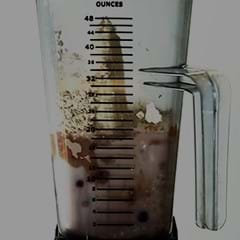Can vitamin C prevent the common cold?
Not really. A major meta-analysis by health database the Cochrane Library considered all studies looking at the impact of taking supplements on the common cold. The results showed that if you take regular vitamin C supplements you’ll probably get the same number of colds – but they won’t last quite as long.
However, a small number of studies have shown that people exposed to short periods of extreme physical stress (including marathon runners and skiers) who took vitamin C, halved their risk of getting a cold.
Timing is key. The Cochrane Report showed was that taking high doses of vitamin C after you show cold symptoms will have no consistent effect on the duration or severity of common cold symptoms.
To complicate the picture, many of the original trials used in this research were poorly designed, according to Dr Anitra Carr of the Free Radical Research Centre at the University of Otago in New Zealand. Specifically, they did not measure the levels of vitamin C already present in people before the trials began.
Her colleague Margreet Vissers recommends we take a supplement of about one gram per day if we are developing a cold. This may at least shorten the duration of the cold, and can also stop it developing into pneumonia.
Why is vitamin C so important?
Vitamin C is an important antioxidant, which helps counteract the effects of damaging free radicals, the atoms associated with cell damage and related diseases.
Amazingly, many animals produce their own vitamin C in their kidneys or liver. Humans (along with other primates and some other species) simply lost the ability to do this, as there was no evolutionary advantage because enough vitamin C could be sourced from their diet.
Research since the 1960s has shown that vitamin C plays a key role in many of the body’s enzyme processes.
“These enzymes all have different functions,” says Vissers, “and they cover a whole raft of biological activities, from the growth of blood vessels through to the regulation of our genetic code. Vitamin C is at the hub of almost every biological function that we know.”
Not surprisingly, our bodies are very efficient at using vitamin C. “There are specific vitamin C transporters that line our entire intestine,” says Vissers. “They take up all the vitamin C from our food and transport it into our bloodstream. All the cells in our body have their own transporters, and they take vitamin C from the blood and concentrate it in the cells.”
Vitamin C levels are tightly regulated by our kidneys, which take all the vitamin C from our blood and put it back into circulation. This happens until our blood reaches saturation (when it contains about 100 micromolars of vitamin C), at which point any excess is excreted as urine.
Vissers likens our bodies to a sponge – a dry sponge will soak up water until it is saturated, when it won’t absorb any more.
“If your tissues are depleted, then your tissues will absorb all that vitamin C and your blood level won’t rise until your tissues have enough and they stop taking it up,” she says. “Once your blood reaches a hundred micomolars, any excess is excreted. That’s the scenario we think is the optimum for good health.”
What about vitamin C and cancer?
Doses of vitamin C can be effective in helping patients with everything from risk of pneumonia to burns.
“The more ill you are, the harder your body is having to fight to maintain you [being] alive,” says Vissers. “And vitamin C is involved in so many processes in your body that you’re basically not giving it a fighting chance [if your levels are low].”
Despite early work by Linus Pauling in the 1970s, which popularized the idea that ultra-high doses (100 grams) of intravenous vitamin C could cure cancer, there is still no evidence to support this.
However, there is a lot of research currently under way, including the role of targeted doses of vitamin C in the treatment of cancer tumors, pneumonia and sepsis.
How much vitamin C do we need, and what are the best sources?
Experts recommend that a fit, healthy person should consume 200 milligrams (mg) of vitamin C each day to reach optimum blood saturation.
That’s easy to do. Two gold kiwifruit (180 mg), three oranges (210 mg) or a cup of frozen blackcurrants (190 mg) are all great sources of vitamin C, and will get you to 200 mg in one easy hit.
Strawberries (80 mg/cup) and honeydew melon (86 mg/cup) are also high in vitamin C – there’s a delicious vitamin C fruit salad to be made with all these fruits.
It'll soon add up on your dinner plate as well. One raw red capsicum contains 240 mg, while sweet potato (66 mg/cup), cooked broccoli (93 mg/cup), and raw red cabbage (50 mg/cup) are all reliably high.
On the other hand, bananas, apples, carrots and spinach are all low in vitamin C.
Supplements versus food?
There is no difference in the quality of vitamin C you get from a pill or from food. If you eat a healthy diet, including at least five servings of fruit and vegetables a day, you do not need a supplement.
But, as stated above, experts do advise taking a supplement if you feel a cold coming on. Since our bodies get rid of vitamin C very quickly, the best policy may be to take small, regular doses of vitamin C to stay topped up.
Finally, don’t overdo it – while overdosing isn’t really an issue, too much vitamin C can cause unpleasant side effects, including nausea and insomnia.

This content is published under licence and in partnership with Radio New Zealand, one of the world’s foremost public broadcasters. To learn more go to radionz.co.nz
Follow the freshest thinking @fitplanetmag.








